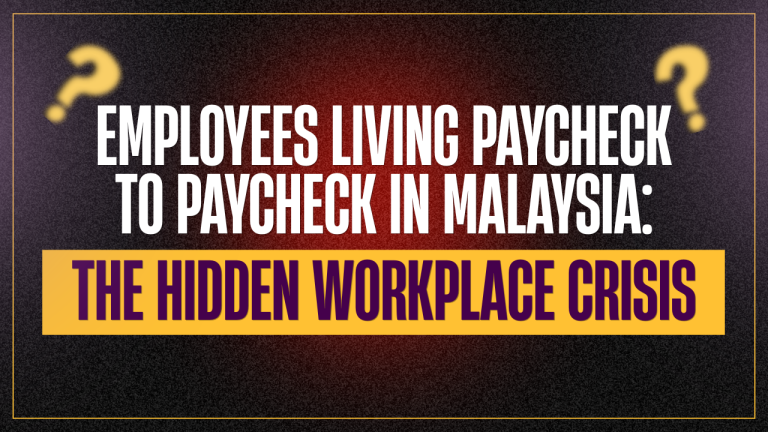Islamic Financial Planner
Are you currently employed as a private banker, or a self-employed consultant whether in insurance, takaful or unit trust industry?
Have you ever encountered a scenario where your clients expressed a preference for solution B, but because you were limited to a single solution provider, you were unable to offer alternatives like solution A, C, D, or E?
I can completely relate to your experience. It can be incredibly frustrating and disheartening when your solution is constantly compared to competitors in the industry.
It can make you feel limited and question if there are other paths for you to advance in the financial services sector.
That’s what I went through and what led me to become one of the Islamic Financial Planner in Malaysia today.
What is Islamic Financial Planning?
Before delving into the process of becoming a Licensed Islamic Financial Planner, it is essential to understand the concept of Islamic Financial Planning itself. Islamic Financial Planning operates within the framework of Shariah law and Islamic Finance; however, it does not certify you for the latter. It focuses on providing ethical and halal financial solutions that are compliant with Islamic principles. This includes investments, savings plans, wealth management, and risk management strategies.
In this article, we will explore the steps and qualifications required to enter this rewarding field, ensuring that you have all the information you need to embark on this exciting journey. Read till the very end.
Step 1: Recognising your passion and intention
The misconception is you’ll earn alot more than becoming a self-employed consultant in the insurance, takaful or unit trust industry.
WRONG.
Given how a Licensed Islamic Financial Planner can have almost all the products available in the market from majority of the Islamic solution providers, it becomes your responsibility to lead yourself first by learning about the problems you want to solve and which Islamic solution providers can solve that problem.
I have personally come across self-employed consultants from insurance, takaful or unit trust industry who have upgraded their license to becoming a Licensed Islamic Financial Planner, but yet still behaving like a self-employed consultant! What do I mean by this? It is when this person is continuously biased towards one provider instead of offering options to the clients. The question that continuously rings in my head is: they already have more than one provider under their license, so why limit the offerings?
It’s never about us, it’s always about the client.
Step 2: Certification
Pursue the following certification for conventional license:
CFP by FPAM
RFP by MFPC
Or these for Islamic license:
IFP by FPAM
Shariah RFP by MFPC
Don’t know what these are? Google.
Step 3: Licensing preparation
Once you have passed all modules from either the conventional or RFP, you are to resign from your principal insurance, takaful or unit trust provider. Some providers may ask you to issue a letter to state that you are not resigning, but rather you are upgrading your license to become a Licensed Islamic Financial Planner. Get in touch with the potential recruiter from the Financial Planning firm to understand the process. Each company has different requirements, invest time in doing your own due diligence.
Step 5: Becoming a Licensed Financial Planner / Licensed Islamic Financial Planner
A joining fee is required (as far as I know) when you are signing up under a Financial Planning firm. Refer here and here to select which firm suits you best.
There is no perfect firm since perfection does not exist. Find one that meets your calling and move forward towards licensing. The firm will be able to assist you further and help you with all the necessary documentation to submit to the Securities Commission and Bank Negara Malaysia. Your licensing duration may take up to three months, depending on the situation. Plan your transition well and never forget to tell your clients about your upgrade.
Clients do not know the difference between becoming a self-employed consultant and a Licensed Islamic Financial Planner. Educate them, because at the end of the day, you’re doing this upgrade to help them too right?
Step 6: Applying what you’ve learnt
Voila! Now that you’re finally licensed, splash your recognition on social media and get ready to start your journey as a Licensed Islamic Financial Planner! There are many ways to skin a cat – find a method that works best for you. Implement what you have learnt in your certification up to licensing onto your own finances first. Gotta walk the talk. That is how we lead out clients – by demonstrating the change first. Be the change you want to see in this world.
Embarking on your journey to become an Islamic Financial Planner in Malaysia is a commitment to ethical finance guided by Islamic principles. It’s not just a career; it’s a path of continuous learning, ethical practice, and community service, contributing to the growth and development of Islamic finance in the nation.
Our tagline is ‘empowering you with financial literacy, here to the hereafter’. Simply because, this dunya is only the beginning and it starts with financial literacy, among many other things.
Check out our earlier article on how to become a licensed Islamic Financial Planner here (link).








